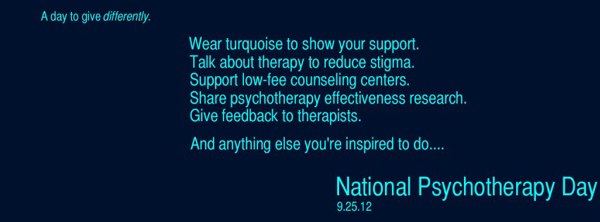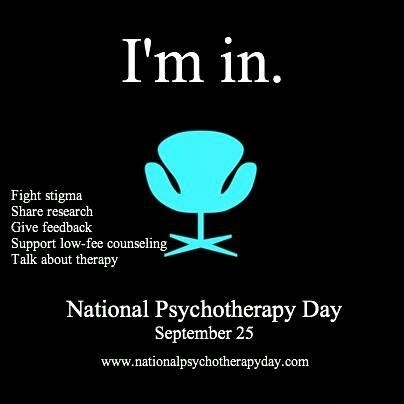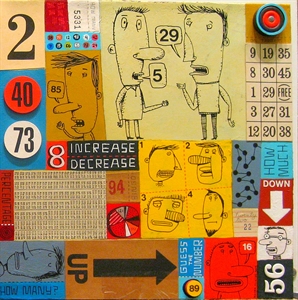National Psychotherapy Day 2024 is on Wednesday, September 25, 2024: Does fluoxetine affect male fertility?
Wednesday, September 25, 2024 is National Psychotherapy Day 2024. National Psychotherapy Day: Therapists Reveal What Therapy Can Do ... National Psychotherapy Day:
As an Amazon Associate I earn from qualifying purchases.

I searched the National Library of Medicine with search terms flouxetine AND infertility. Six articles were mentioned only one of which commented on this. Here is the abstract:
------------------------------------------------------------------------------------------------
Malays J Med Sci. 2011 Jan;18(1):16-24.
Psychiatric intervention improved pregnancy rates in infertile couples.
Ramezanzadeh F, Noorbala AA, Abedinia N, Rahimi Forooshani A, Naghizadeh MM.
Source
Infertility Clinic, Vali-Asr Hospital, Tehran University of Medical Sciences, Keshavarz Boulevard, Tehran, Iran.
Abstract
BACKGROUND:
Infertility has mental, social, and reproductive consequences. The aim of this study is to evaluate the effect of psychiatric intervention on the pregnancy rate of infertile couples.
METHODS:
In an experimental and intervention-control study, 638 infertile patients who were referred to a university infertility clinic were evaluated; 140 couples (280 patients) with depression (from mild to severe) in at least one of the spouses were followed. All couples provided informed consent and were randomly numbered from 1 to 140. Those with even numbers were assigned to the psychological intervention before infertility treatment, and those with odd numbers were assigned to the psychological intervention during infertility treatment. Patients in the experimental group received 6-8 sessions of psychotherapy (individually) before beginning infertility treatment and were given Fluoxetine (antidepressant) at 20-60 mg per day during the psychotherapy period. The control group did not receive any intervention. Three questionnaires, the Beck Depression Inventory (BDI), the Stress Scale (Holmes-Rahe), and a sociodemographic questionnaire, were administered to all patients before and after treatment. The clinical pregnancy rate was compared between the two groups based on sonographic detection of gestational sac 6 weeks after the last menstrual period. The data were analysed by t test, X(2) and logistic regression methods.
RESULTS:
Pregnancy occurred in 33 (47.1%) couples in the treatment group and in only 5 (7.1%) couples in the control group. There was a significant difference in pregnancy rate between the treatment and control groups (X(2)= 28.318, P < 0.001). To determine the effectiveness of psychiatric interventions on pregnancy, a logistic regression analysis was used. In this analysis, all demographic and infertility variables were entered in a stepwise manner. The results showed that in the treatment group, Pregnancy in the treatment group was 14 times higher than the control group (95% CI 4.8 to 41.7). Furthermore, cause of infertility was an effective factor of pregnancy. The adjusted odds ratio in male factor infertility was 0.115 (95% CI 0.02 to 0.55) and in both factors (male and female) infertility was 0.142 (95% CI 0.03 to 0.76) compared with the unexplained group. In this study, no other variables had any significant effect on pregnancy.
CONCLUSION:
Based on the effectiveness of psychiatric interventions in increasing pregnancy rate, it is crucial to mandate psychiatric counselling in all fertility centres in order to diagnose and treat infertile patients with psychiatric disorders.
--------------------------------------------------------------------------------------------------------------
It would seem that in this study the effect was positive although the paucity of reported studies suggests not much is known about this.
Although I don't know how much info you would get, it might be reasonable to call the pharmaceutical company that makes Prozac, one brand name for fluoxetine.
Hope that helps.

Could purging be the cause of diarrhea?
1. Identify your triggers. Everyone has different triggers. Stress, loneliness, family problems, a bad day can all lead to the impulse to purge. Take note of what your triggers are and try to avoid them and learn ways to better cope with them.
2. Improve your self-esteem. Self-esteem is a big key factor in your binge/purge cycle. Studies show that people with low self-esteem are more prone to depression, loneliness, poor body image, helplessness, feeling like they have no control, and feeling unable to cope with stress and change. These are all triggers for a binge/purge cycle. Improving your self-esteem will help remove these triggers from your life.
3. Eat at regular intervals. Never let yourself get hungry. Avoiding food for long periods of time can cause you to get that out-of-control hungry feeling that triggers a binge. Eating a small amount every 3 to 4 hours can curb binges and subsequent purges.
4. Consider taking medications. Since bulimia is primarily a psychological disorder, some people have found recovery success through a combination of psychotherapy and medications. According to the National Institute of Mental Health, the only anti-depressant approved by the USDA for the treatment of bulimia is Prozac. Prozac has been found to reduce binging and purging, prevent relapse, and improve attitudes toward eating. Other types of medications, such as selective serotonin-reuptake inhibitors (SSRIs) have also been shown to reduce binging and purging cycles. Discussing your disorder with your doctor or therapist can help you decide if medications are right for you.
5. Get comprehensive treatment. Group therapy, and especially cognitive behavior therapy, is an effective way to maintain recovery after you’ve maintained some sense of control over your binging and purging. Comprehensive therapy that includes group and individual counseling, psychotherapy, medications and nutritional counseling is the most successful form of treatment.
6. Be honest with yourself and others. Recruit a friend or trusted family member to help you along in your recovery process. Fill them in on your triggers and advise them on steps they can take to help diffuse the pressure of a potential binge/purge cycle. If certain situations or environments trigger your disorder, turn down invitations and turn to your trusted confidant instead to help get your mind off of a stressful situation.
7. Change your mindset about overindulging. Just because you binge or eat something you feel you shouldn’t, doesn’t mean you should scrap the entire day as a lost cause and purge. Take your recovery one day at a time and be patient with yourself. Relapse is inevitable but a necessary step in the recovery process.

Dysthymia and can't take it anymore?
Try GABA a supplement --and this list of suggestions: Here are some guidelines to check out for yourself. Work through this program for the next 30 days.... and you will find yourself in a different mental state.
First of all I would check my diet: See articles below--make sure you are eating a healthy diet.
Gluten, artificial sweeteners, food additives can contribute to depression
Second of all I would watch my self talk and learn about healthy self-talk .....
What you believe is what you create
Third I would start a gratitude journal and focus on all of the positives and add to it each day
Fourth I would take up an exercise program--this will help naturally increase the happy chemicals in your body
Fifth -I would learn all I could about happiness and how happiness is a minute by minute choice.
Sixth I would eliminate ALL TV that does not contribute positively to your life –most TV shows program you for fear or other negative behaviors.
Seventh --I would volunteer to help others for at least 2-3 hours a month..this will take the focus off of you.
Eighth: Learn how your subconscious mind works! The Power of Intention
Ninth: Get 3 X 5 Cards and write "afformations" ....yes that's right .."afformations" not affirmations.
Afformations are in the form of a question....rather than a statement. Write at least 10 of them
Example: Why am I so happy? Why do I attract positive loving kind friends? Why am I so well liked.
Tenth: I would seek help in healing past hurts...here are some free resources
(also may provide you with resources )
If you would like immediate prayer , you may
Science of Mind Practitioner at World Ministry.
From within the United States or Canada call: 1-800-421-9600
From all other countries call: 818 556-2298
Eleventh: Start a book study group with your friends and choose some GREAT personal development books and study the book together. Help each other.
Twelfth: Check out your local community college or community for courses that you can take or ask leaders in the community to come and talk to your school—
Thirteenth:
Subscribe to uplifting newsletters with daily quotes: (see resources below)
Fourteenth: Start a journal and write down your thoughts and if they are negative, explore them and write about how to change them.
Fifteenth: Have patience with yourself – Each day we think at least 70,000 thoughts and many of those are negative. (these thoughts come from ourselves as well as from TV, Friends, Family, Internet, etc.) So each year we think (at least) 25, 550,000 thoughts----these thoughts are like seeds that get planted in our minds and many of them take root and continue to grow. If you are 15 years old you will have thought over 383,250,000 thoughts----changing the ones in there that are negative take time and patience. If you are 30—you have thought at least 766,500,000 thoughts. If you are 40—you have thought at least 1,022,000,000. The bottom line is patience and persistence and not giving up.
Don't just "try" these things once, keep at it!
When we are no longer able to change a situation, we are challenged to change ourselves.”
― Viktor E. Frankl, Man's Search for Meaning
“The one thing you can’t take away from me is the way I choose to respond to what you do to me. The last of one’s freedoms is to choose one’s attitude in any given circumstance.”
― Viktor E. Frankl
Note: By the time we are age 4 50% of our beliefs, attitudes and ideas about the world are set in our mind .
By the time we are 8 -- 80% of our beliefs, attitudes and ideas about the world are set in our mind By the time we are 18 95% of our beliefs, attitudes and ideas about the world are set in our mind---
these beliefs, attitudes and ideas are set in our minds by our experiences with those in our lives and everything we see or hear.
The gift that we have as human beings is that we CAN change.
These beliefs attitudes and ideas are impacted by what we also experience as children and form subconscious fears, anxieties and beliefs that impact the REST of our lives. If not dealt with properly they can become future unhealthy relationships, hardships in life and dis-ease in our bodies.
















